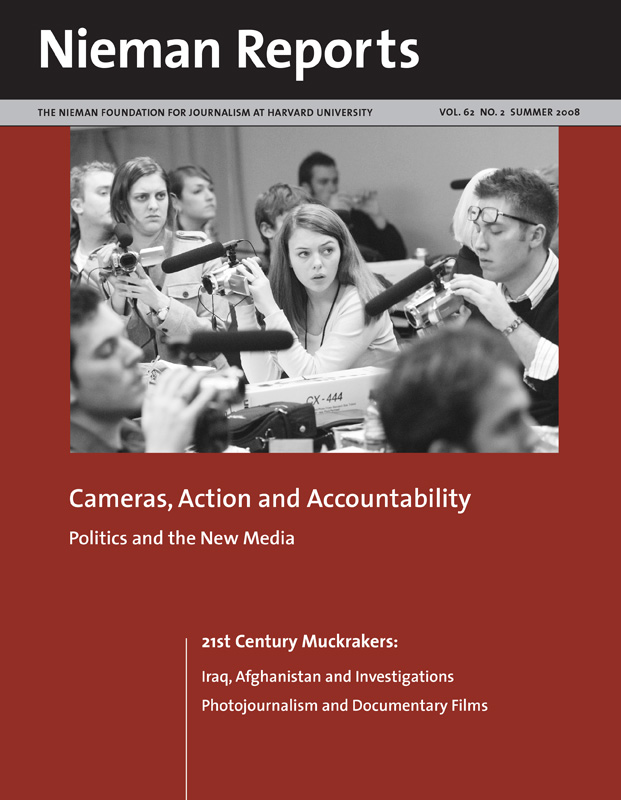Arianna Huffington, whose Huffington Post has quickly become one of the more successful news and information blog sites, recognized in 2007 that if her army of volunteer bloggers were to compete with these traditionalist sites, she would need to strive for similar standards of professionalism. She has hired such veteran journalists as Thomas Edsall, recently retired after a distinguished career at The Washington Post, and Betsy Morgan, former general manager of CBSNews.com. Morgan’s former boss told The New York Times that moves of this type are significant in what they bode for the future. "New media companies weren’t doing this before," said Larry Kramer, a former CBS executive. "I think it shows that traditional media companies are further down the road than people think" in terms of "being very helpful for how new media plans to expand."
RELATED ARTICLE
“Shifting Influence: From Institution to Individual”
– John Harris In addition, a rapidly increasing number of sites are launching on the Web staffed by journalists trained in and adhering to traditional practices. Among the longest-running are Salon and Slate (now owned by The Washington Post’s parent company). And one of the newest practicing this form of crossover journalism is Politico.com, backed by Washington, D.C. businessman Robert Allbritton. Politico debuted in January 2007, edited by two of The Washington Post’s most prominent political writers, John F. Harris and Jim VandeHei, who had been lured away by Allbritton with a promise of long-term financial backing. Its start-up staff also included veterans of such mainstream publications as The New York Times, Time magazine, The Philadelphia Inquirer, Cox newspapers, The (Baltimore) Sun, and USA Today, to list a few. Although in its mission statement the online publication said it would push against the constraints of newspapers that "tend to muffle personality, humor [and] accumulated insight," it also promised to practice journalism that "insists on the primacy of facts over ideology." Perhaps auguring things to come, Politico also publishes a real newspaper of the same name aimed at a Capitol Hill and K Street audience in Washington, D.C.
RELATED ARTICLE
“Shifting Influence: From Institution to Individual”
– John Harris In addition, a rapidly increasing number of sites are launching on the Web staffed by journalists trained in and adhering to traditional practices. Among the longest-running are Salon and Slate (now owned by The Washington Post’s parent company). And one of the newest practicing this form of crossover journalism is Politico.com, backed by Washington, D.C. businessman Robert Allbritton. Politico debuted in January 2007, edited by two of The Washington Post’s most prominent political writers, John F. Harris and Jim VandeHei, who had been lured away by Allbritton with a promise of long-term financial backing. Its start-up staff also included veterans of such mainstream publications as The New York Times, Time magazine, The Philadelphia Inquirer, Cox newspapers, The (Baltimore) Sun, and USA Today, to list a few. Although in its mission statement the online publication said it would push against the constraints of newspapers that "tend to muffle personality, humor [and] accumulated insight," it also promised to practice journalism that "insists on the primacy of facts over ideology." Perhaps auguring things to come, Politico also publishes a real newspaper of the same name aimed at a Capitol Hill and K Street audience in Washington, D.C.



